Table of Contents Show
If you have ever grabbed a glass of water from the sink in your RV and found it a bit dirty or emitting a foul odor, you may be the perfect candidate for an RV water filter. Even if you fill your fresh water tank with pristine mountain well water from home before heading out on a camping trip, you never know what may be lurking in the tank when it comes time to chug a drink after a long hike. Let’s look at what an RV water filter can do and how to find the perfect one for your situation.
What Is an RV Water Filter?
In the simplest of terms, a water filter uses various filter materials that “grab” substances out of the water that passes through it. This allows cleaner water to emerge while discarding the offending particles.
A water filter can reduce or remove:
- Sediments
- Bacteria
- Chlorine
- Salts
- Minerals like magnesium and calcium (commonly known as “hard” water)
- Ammonia
- Heavy metals
- Offensive odors
By taking these items out of the water, a filter keeps your RV’s pipes healthy, makes your water taste and smell better, and also protects you from bacteria that can be present in a stagnant tank. So adding one to your RV equipment list is a definite must-have. See all our recommendations for clean and crisp drinking H2O.
How To Choose a Filter
When deciding what type of filter is best for your situation, you will need to:
- Know what types of contaminants are in the water. (Can you taste chlorine or smell rotten eggs, etc. in the water?)
- How much water will you filter? (Just the drinking water from your sink or all water that comes into your RV?)
- How frequently will you be using the filter (Do you camp now and then, or are you a full-time RVer?)
- Evaluate cost over time if you are planning a thorough water filtering system, rather than an inline filter
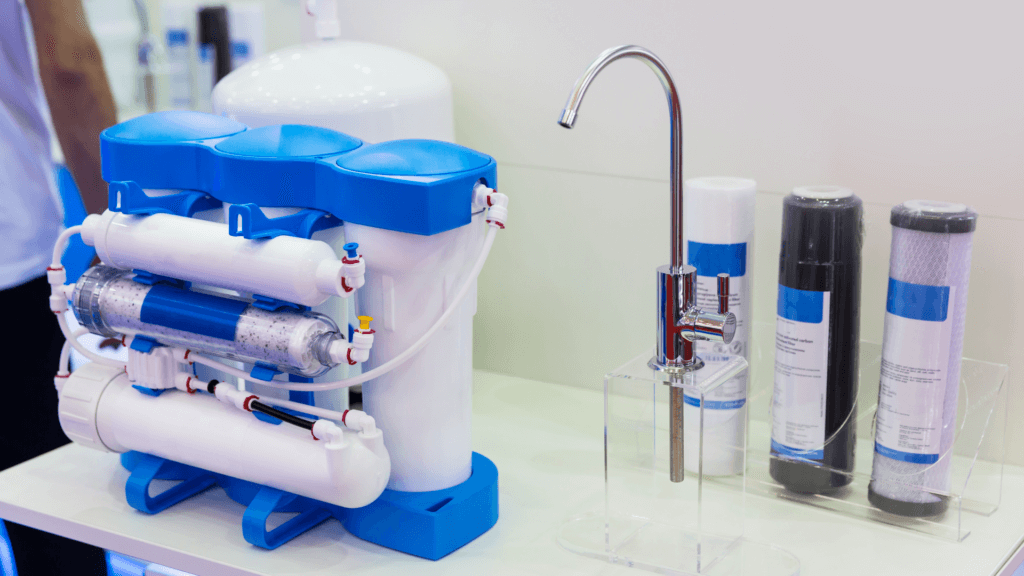
Types of RV Water Filters
There are also different filters to weed out certain elements. You can choose to install one filter or add a second or third filter to take out additional contaminants, as well.
Carbon Filters
There are two types of carbon filters. The least expensive is a granular filter that passes water through grains of carbon to take out about 50% of the chlorine found in some waters.
The second filter is a carbon block, which pushes water against a solid block of carbon. It is then forced to make channels through the carbon and leaves about 75% of the chlorine on the block.
Sediment Filters
These RV water filters use carbon paper to filter particles of sediment out of your water. The filters are rated by the smallest size particle they can remove. This is referred to as a “micron.” So the smaller the micron size, the better the filter. These types of filters need to be cleaned of the sediments after use.
Ceramic filters
These RV water filters are used to remove bacteria, giardia, and pathogens from the water. Additionally, many carbon filters are hybrids with ceramic filters built into them.
Ultraviolet purification
This system consists of a stainless steel chamber with a germicidal lamp that emits ultraviolet radiation. This is to kill water-borne diseases caused by microorganisms. It is a costly solution but can be used in collaboration with other filters to take care of almost all types of contaminants.
Reverse osmosis systems
The most comprehensive of all RV water filters is the reverse osmosis system. Water is forced through a semipermeable membrane with tiny pores that dissolve almost all solids from the water. A sediment filter within the system takes out particles, and a carbon filter improves the water’s taste.
Best RV Water Filters
We choose a double canister system by Clear2Go for our RV. The biggest benefit over similar competitors is the inclusion of pressure gauges for each filter housing. We have noticed that a dirty filter has been one of the main culprits of low water pressure in our RV and the inclusion of a gauge makes it easy to quickly see if we have a clogged or dirty filter. Check out our complete review of the best RV water filter system here.
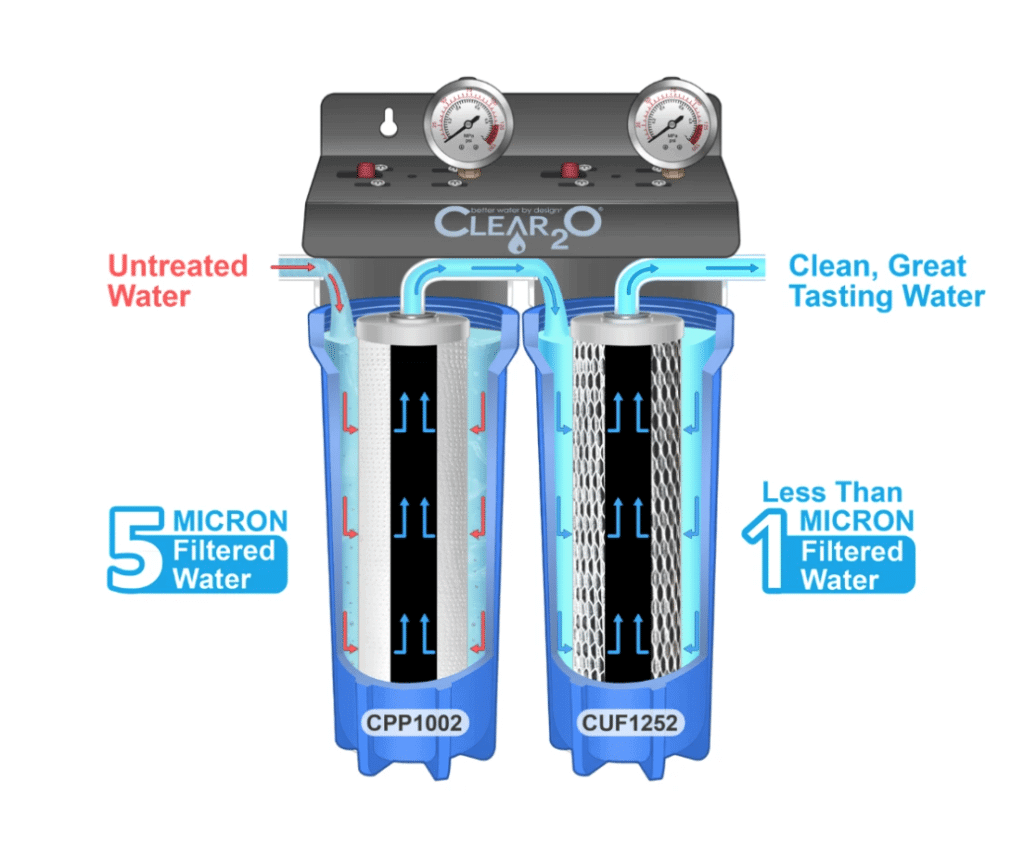
The following are also good brands and the current best sellers on Amazon:
- Advanced 6-Step Water Filtration System: Experience the extraordinary power of Hex-Flow Technology & its remarkable...
- Superior Filtration Standard: The combined GAC & KDF layers boost your water’s purity by removing unpleasant taste,...
- PROTECTION AGAINST VIRUSES, BACTERIA, AND CYSTS. Our top-of-the-line Ultra systems with Clearsource-exclusive VirusGuard...
- VIRUSGUARD VS. 0.2 MICRON FILTERING. Our exclusive VirusGuard technology traps even the smallest viruses using an...
- Heavy Duty Construction Designed Specifically For RV Use | Lifetime Manufacturer Warranty | The housing, fixtures, and...
- Lead-Free Brass Fixtures Prevent Leaks | The use of 3/4" lead-free brass fixture provides a strong connection to the...
How to Install
Most RV water filters used to process all of the water coming into your RV are placed between the source spigot and the hose coming into your freshwater tank. Ultraviolet filters are usually larger than a sediment or carbon filter but need to be placed between the water source and the hose that supplies your RV water system, so it should be mounted on the wall of your wet bay.
There are also UV filter models that mount under your sink and send water through a dedicated faucet that comes with the filter. All UV filters also need electricity to work, so you will need an electrical outlet where you mount the filter and remember not to look at the light when it is turned on!
If you choose only to filter the water from your kitchen sink, you can usually attach a filter to it below the sink along the supply pipe to that faucet.
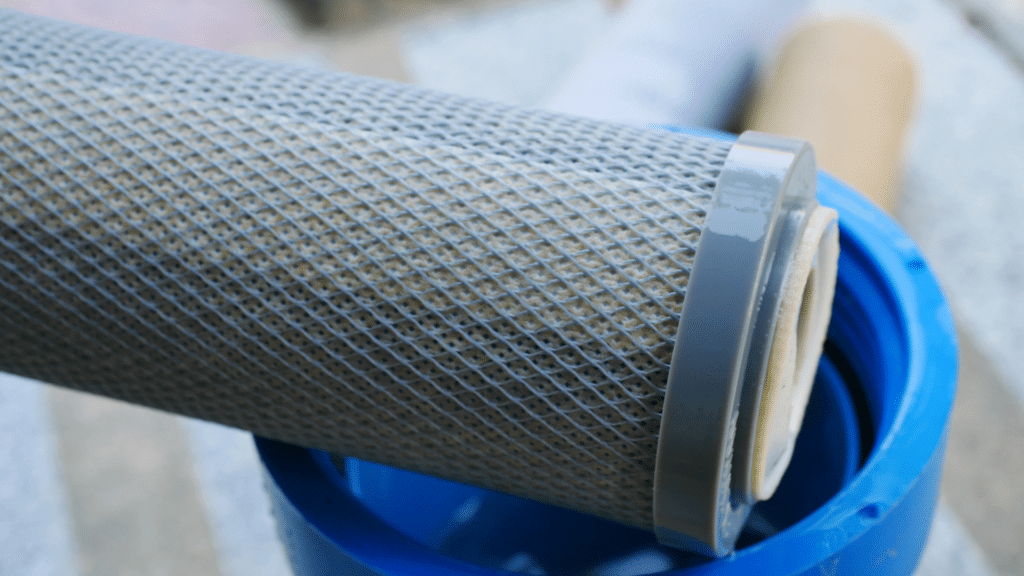
How to Clean
All RV water filters need cleaning periodically, and the ultraviolet filter has a few extra parts to keep clean, including a quartz tube with a UV light bulb that will have to be replaced about once a year. However, granular carbon filters are not made for long-term use, and the only maintenance or cleaning you can do between changes is to remove any noticeable sediment by hand.
Last update on 2024-12-24 / Affiliate links / Images from Amazon Product Advertising API




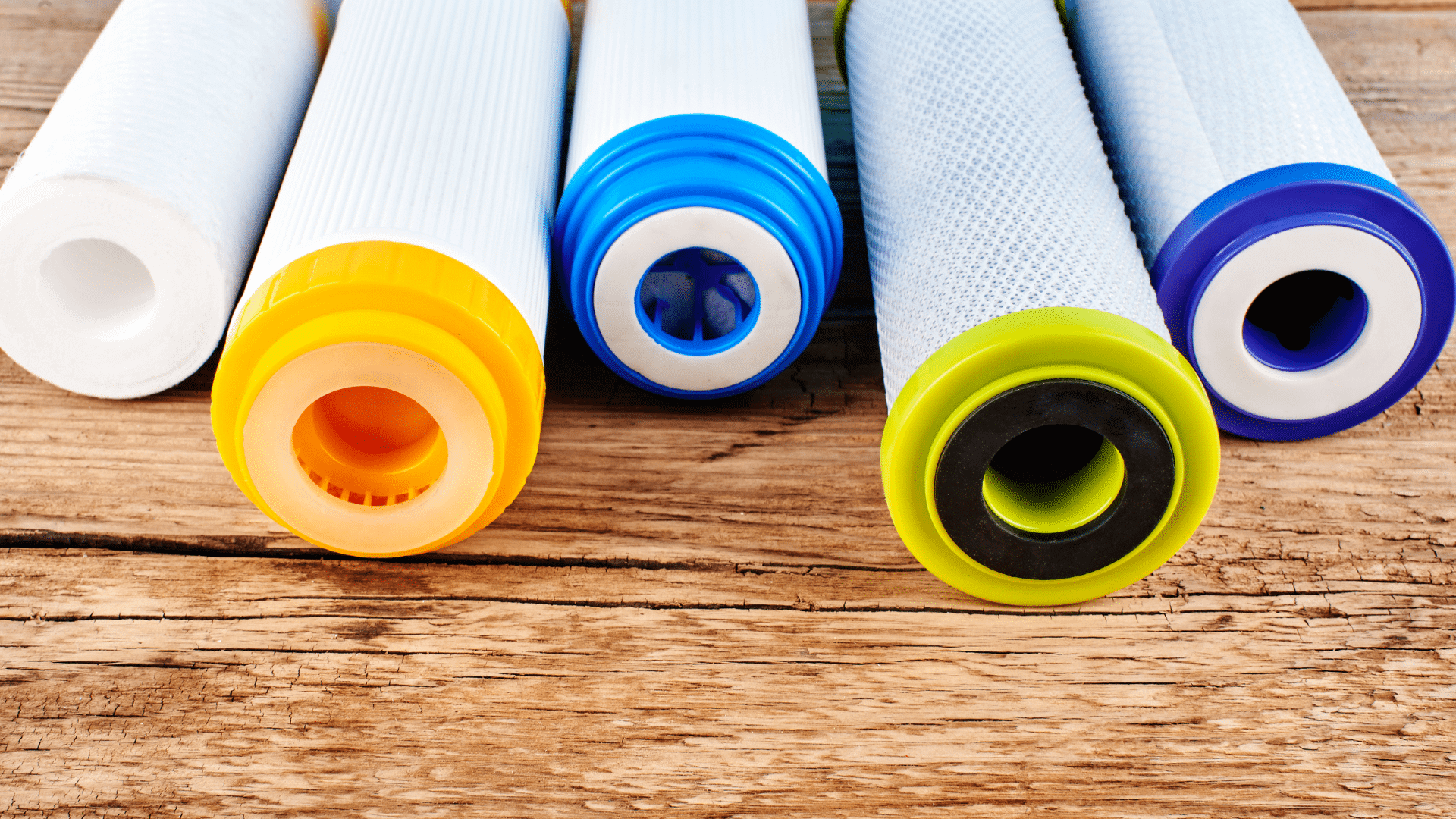




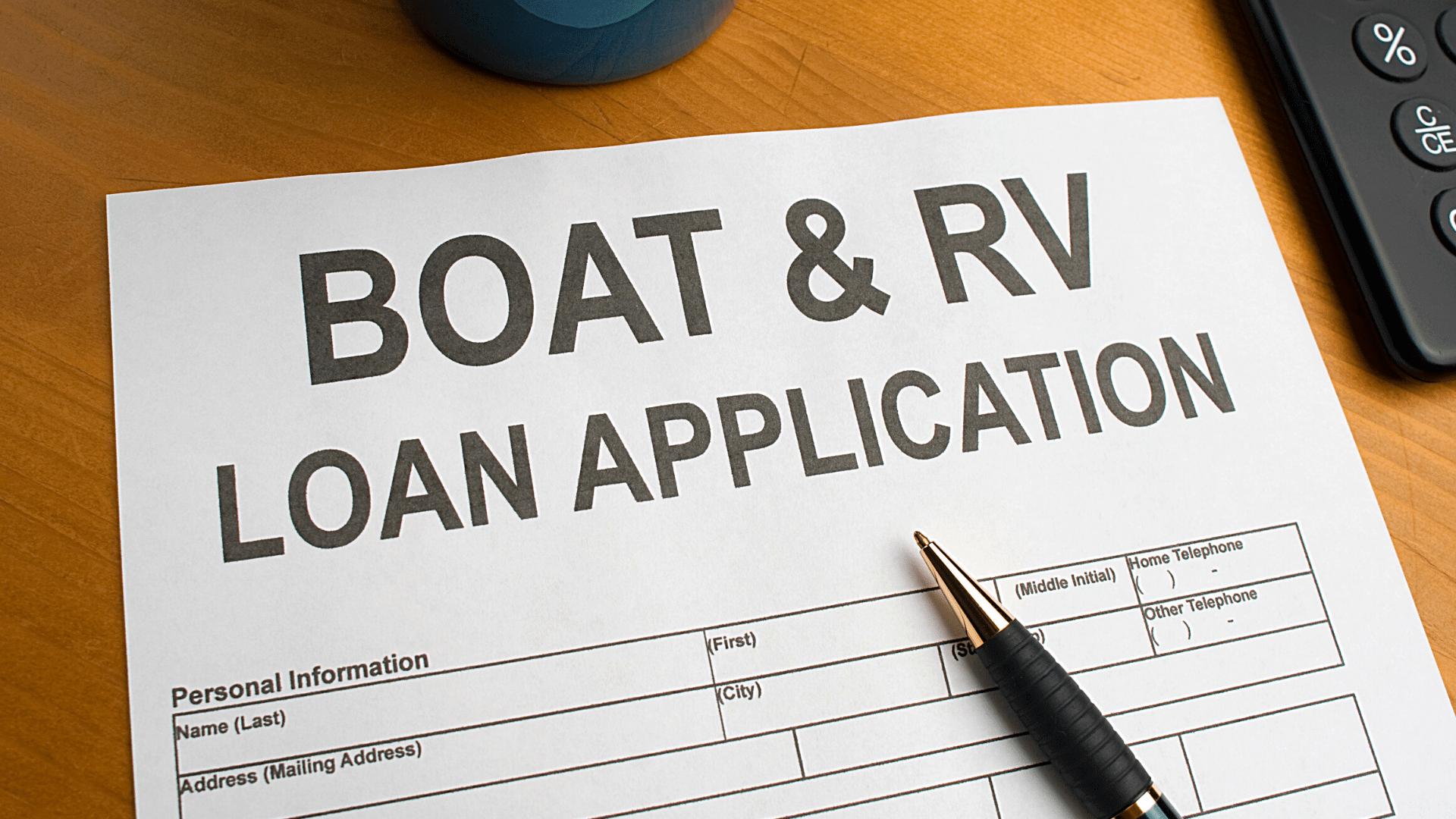
My unit came with a water filter which I upgraded to a finer mesh and added charcoal for better taste with a stand alone prefilter for sediment. Works well.